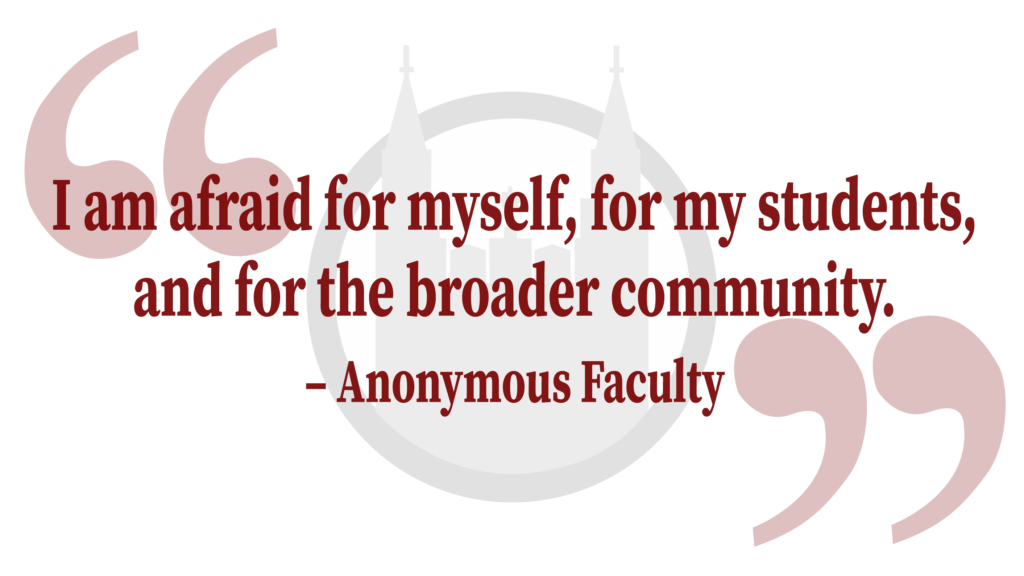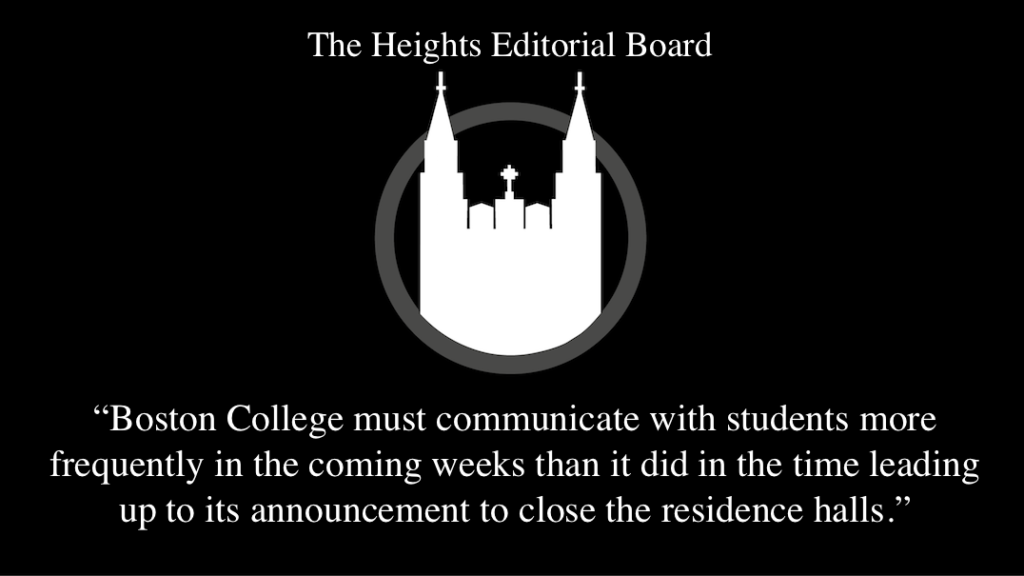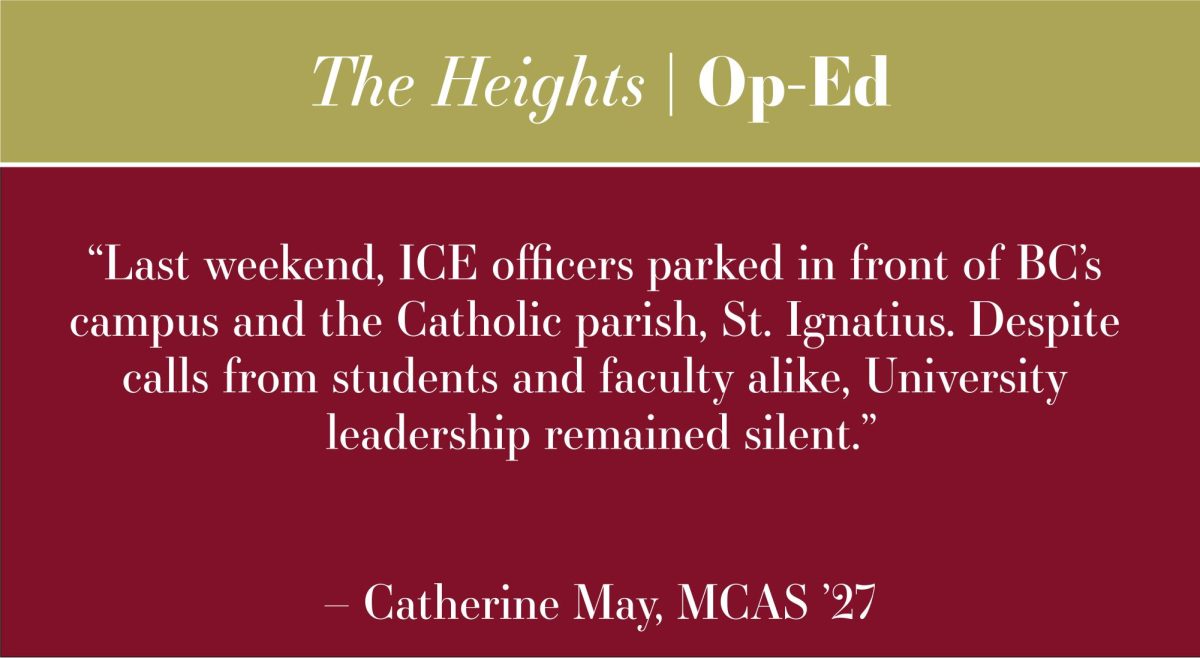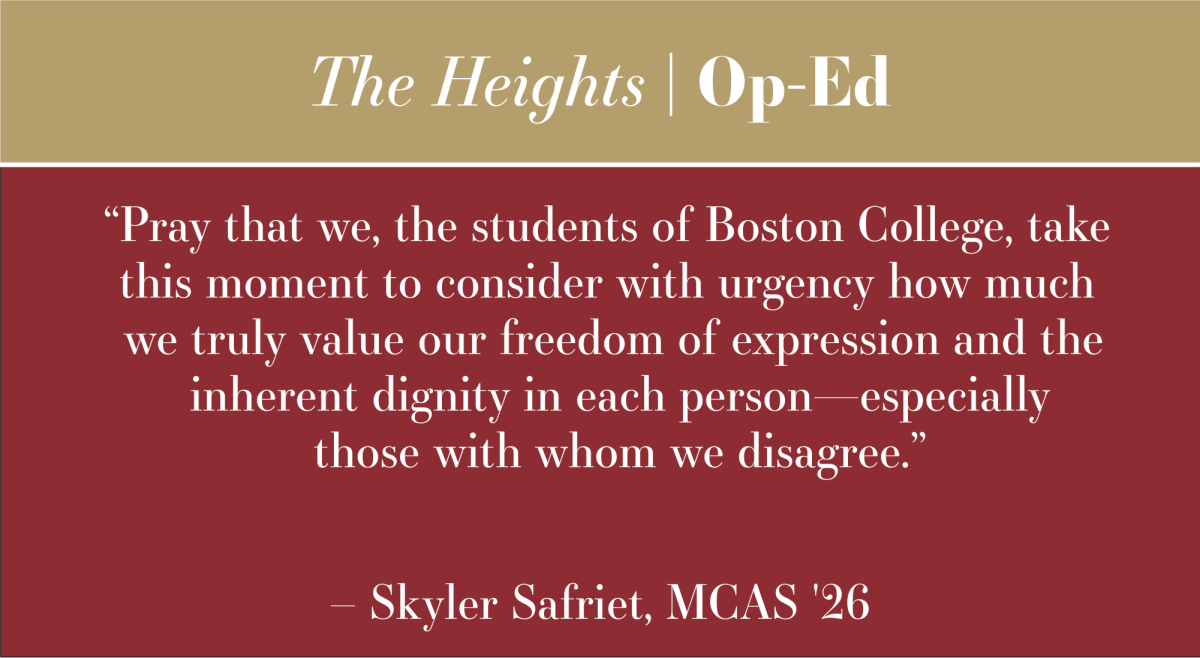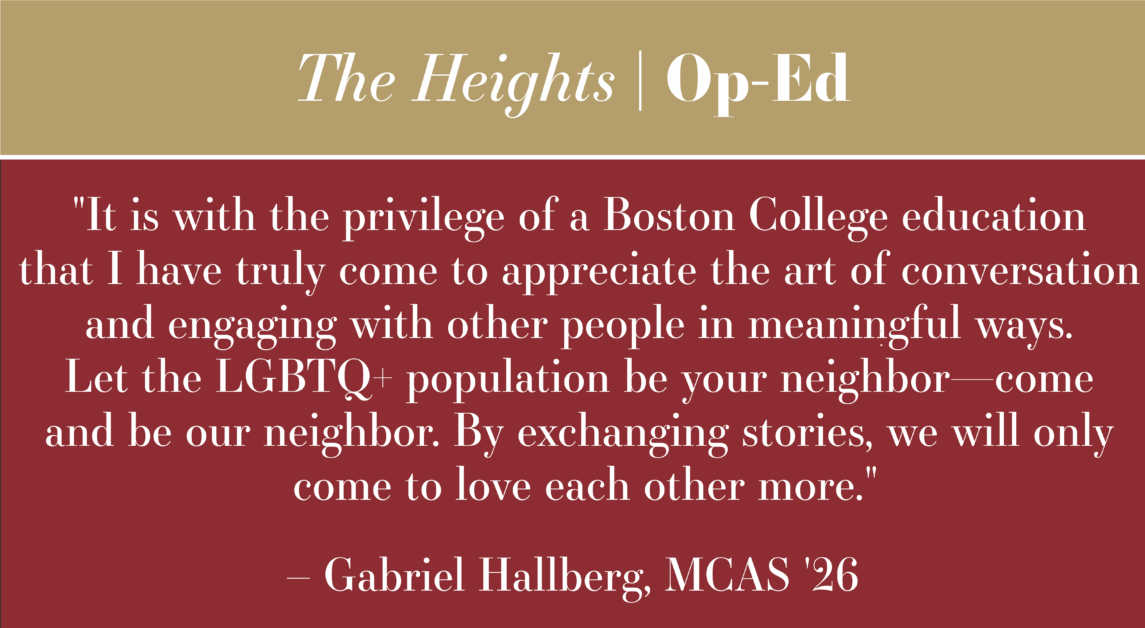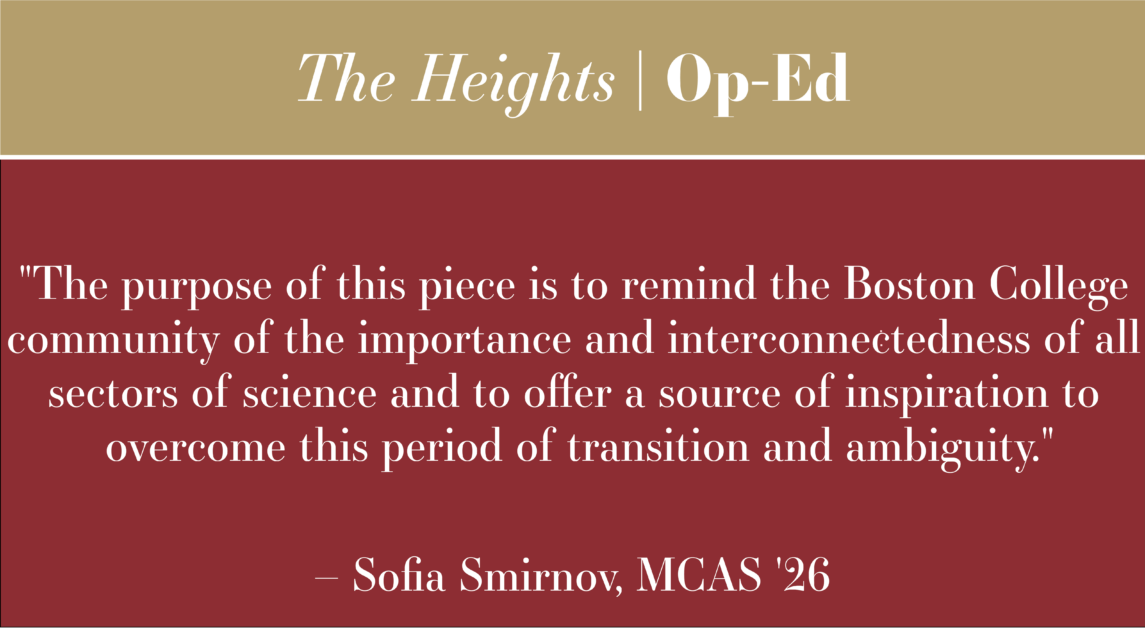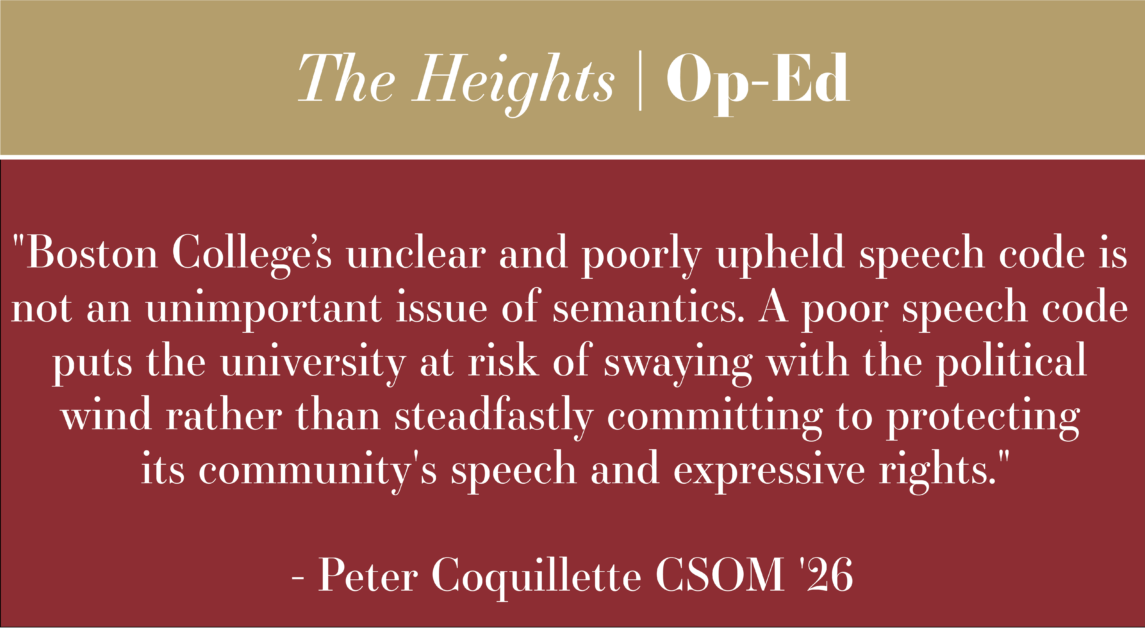The topic of laundry sounds quite myopic in a time when the CDC projects that over 200,000 people in this country are slated to die from a pandemic by next month, and people like me are tardily waking up to the full realization that Black people’s lives are under sustained attack.
But I think that laundry is a valuable gateway for seeing how BC’s administrators uncharitably and unproductively deal with concerns, even on a small scale. And the fact of the matter is, if you can’t deal with washing clothes, you can’t deal with racial justice or COVID-19.
The most obvious impact that BC’s laundry systems have on students is on their wallets. A single load of laundry costs $1.75 to wash and another $1.75 to dry. God help you if you actually want to wash your clothes in different batches according to temperature and colors.
In the grand scheme of things, $1.75 is but a drop in the bucket for most BC students: According to an analysis reported by The New York Times in 2017, Boston College is one of 38 colleges and universities in the United States where more students come from the top 1 percent of income than the entire bottom 60 percent. (One of my predecessors performed another type of study to measure wealth on campus, counting the number of Canada Goose jackets on campus.)
Assuming one single load of washing and drying per week, students must allocate more than $50 toward laundry each semester. Using the 7,408 undergraduates who lived on campus in fall 2019 as a representative count, that comes out to a conservative total of $777,840 per year that gets suctioned away from the student body off the bat.
For a fair number of BC students who come from low-income backgrounds, that price tag has the potential to disrupt academics as it forcibly redirects money away from books and school supplies.
Surely, though, the University must have some fund that it can draw from to reimburse the laundering costs of students from less privileged backgrounds? Surely some fraction of our nearly $80,000 cost of attendance must go toward supplementing such a cause, which aligns with being “men and women for others”?
The answer, of course, is “no,” written dispassionately in BC’s signature Scala typeface. A representative for the Montserrat Office informed me via email that such a program does not exist anywhere across the University. (At the time of writing, representatives from the Office of Residential Life had not responded to requests for comment.)
These costs—which range from irritating for some students, to utterly prohibitive for others—take on a new gravity with the coronavirus.
Both the CDC and the World Health Organization have encouraged people to wash their reusable masks after every use. Washing by hand is an option, but to do so properly requires bleach—which local supermarkets have a tremendously low stock of, if any at all. Barring that option, the only efficacious alternative is to use a laundry machine, but this itself poses public health concerns.
On BC’s campus, the problem starts with laundry facilities themselves: They’re cramped, humid, and have minimal ventilation. Besides that, virtually everyone in residence halls is guaranteed to use laundry facilities at least once during the term. This alone would make contact tracing a nightmare, if any such procedures existed in dorms to begin with. Unlike spaces such as O’Neill or classrooms that have been designated as areas for virtual classes, there are no forms for students to provide their name, contact information, and the time in which they entered a dorm building.
Other preventative measures, such as physical distancing or scheduling time slots for doing laundry, are good ideas in theory. But in practice they would add additional stress and wait times to a chore that barely fits in students’ schedules as it stands. It should be a given that laundry be easier, not harder, right now.
This sounds like it would be the perfect opportunity for student government to step in: an issue too daunting for a single student to take up by themselves yet too mundane for it to matter on the municipal or state level.
Unfortunately, we haven’t got a student government.
Instead, what Boston College undergraduate students have in UGBC is a modern-day Russian Duma, which by design, can’t get anything meaningful done. I’ve certainly had my axes to grind against that body in the past, but when push comes to shove, almost all of the blame for its powerlessness lies with BC’s administrators. Over many decades, the student government’s profile has been whittled down to an impotent sounding board that administrators can freely ignore with no consequences other than exasperated sighs from students. All the while, those with authority in the University nod their heads in faux sympathy and elocute two-dimensional platitudes that have grown threadbare with overuse.
What’s most frustrating is that I have beheld an instance when a university’s student government was able to work with administrators to solve this exact problem.
When I studied at the University of St Andrews in Scotland last year, the Students’ Association ran a massive campaign to cut the cost of washing clothes and improve the student experience. In the end, the association was able to work with the university to persuade the laundry vendor to offer a 40 percent bulk discount on laundry credits as well as interest-free loans on washes, among other concessions.
The main difference between the two situations is that, at St Andrews, administrators were willing to listen and work with the student body. Jamie Rodney, the Students’ Association president at the time, told me that higher-ups at St Andrews had no idea that laundry costs and maintenance posed a significant issue. But once they found out about them, they used their negotiating power to better the lives of their students.
Here in Chestnut Hill, administrative engagement with students is harder to come by than an actual Boston accent.
When an Instagram account shared students’ experiences of racism on campus, BC refused to do anything except merely acknowledge the existence account. BC refuses to listen to students’ calls to divest from fossil fuels (and, incredibly, chooses to explicitly ignore papal guidance in order to justify that position). BC refuses to weigh the option of providing contraception to its students, which a majority of student voters supported in a 2018 referendum.
It would be foolish for anyone to think that students might ever form some sort of democracy at Boston College overnight through which every student’s complaint—such as a change to the costs of laundry—would get addressed. But it’s not so unreasonable to ask for the bare minimum: honest and frequent discussions between student representatives and University officials, more than the superficial talks that BC periodically caves into for the sake of good public relations.
Featured Graphic by Ally Mozeliak / Heights Editor


